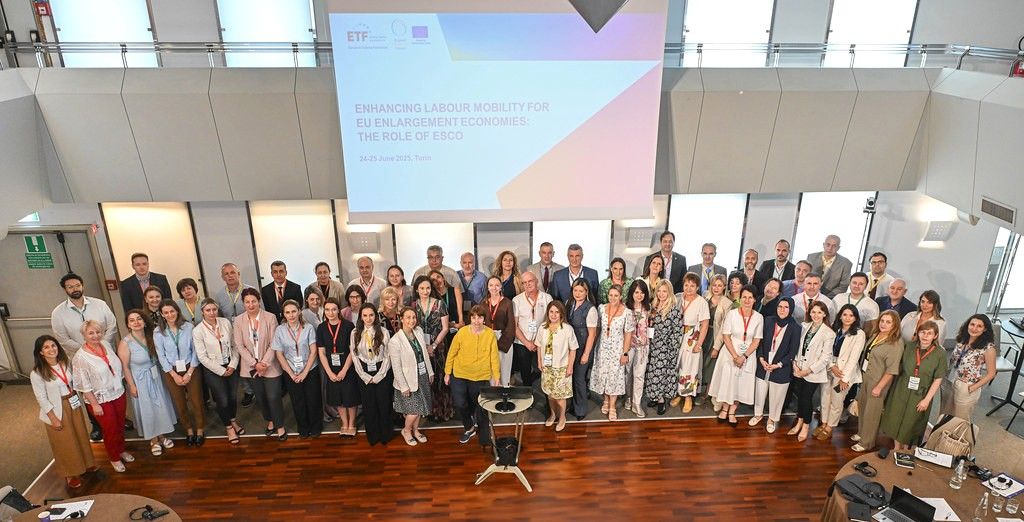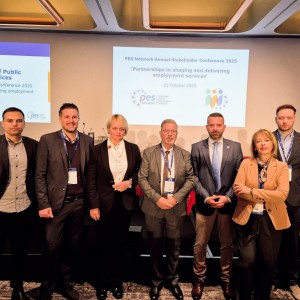RCC ESAP 3: Western Balkan Economies Build Capacity on Use of ESCO to Enhance Labour Mobility

RCC ESAP 3 and ETF support alignment with EU tools to enhance labour mobility and job matching
Turin, 25 June 2025 – The Regional Cooperation Council’s (RCC) Employment and Social Affairs Platform 3 (ESAP 3) project and the European Training Foundation (ETF) jointly organised a two-day capacity building event in Turin, Italy, dedicated to exploring the use of the European Classification of Skills, Competences, Qualifications and Occupations (ESCO) in the context of labour mobility and EU accession processes. Held on 24–25 June 2025, the event gathered over 30 representatives from labour and education ministries, Public Employment Services (PES), and skills and qualifications agencies from the Western Balkans, along with just as many participants from Moldova, Ukraine, and Türkiye.
The event was framed around key EU tools such as EURES and Europass, and aligned with the European Commission’s Union of Skills agenda. Participants explored how ESCO can be used to improve job matching, facilitate labour market analysis, and inform education and training systems, with a view to advancing regional integration and compliance with the EU acquis, particularly Chapter 2 on the free movement of workers.
In her opening remarks, Pilvi Torsti, Director of the ETF, highlighted the importance of common language and interoperability tools like ESCO for improving cross-border mobility and qualifications recognition. Speaking online, Laura Corrado, Head of Unit at the European Commission’s DG EMPL, reaffirmed the EU’s commitment to supporting enlargement economies in aligning their labour market systems with EU standards. Ratka Babic, Team Leader of ESAP 3 at RCC, underlined the value of regional cooperation and peer learning in implementing complex reforms such as the introduction of ESCO.
The two-day event featured a range of thematic sessions and interactive workshops. Participants examined the main provisions of the acquis communautaire affecting labour and skills mobility, received an introduction to the governance and benefits of EURES, and discussed the integration of ESCO into national systems. EU experts from the ESCO and EURES Secretariats, the European Labour Authority (ELA), and several Member States shared practical insights and technical expertise on mapping national classifications to ESCO and translating it for national use.
Country-specific use cases were presented, offering concrete examples of ESCO implementation. Other sessions addressed the portability of skills and the role of national qualifications databases, the use of ESCO in labour market analytics, and future steps for institutional readiness.
Alongside the main event, a dedicated technical workshop was held for delegation from Montenegro as part of an technical assistance facility under ESAP 3, focusing on operational aspects of ESCO adoption.
The event also served as a launchpad for a series of follow-up webinars organised by ETF and RCC ESAP 3. These online sessions will delve deeper into individual economy priorities and implementation challenges, supporting countries in aligning their systems with EU tools and standards.
By fostering dialogue, sharing knowledge, and strengthening regional capacities, the RCC ESAP 3 and ETF continue to support enlargement economies on their path towards EU integration and enhanced labour mobility.


